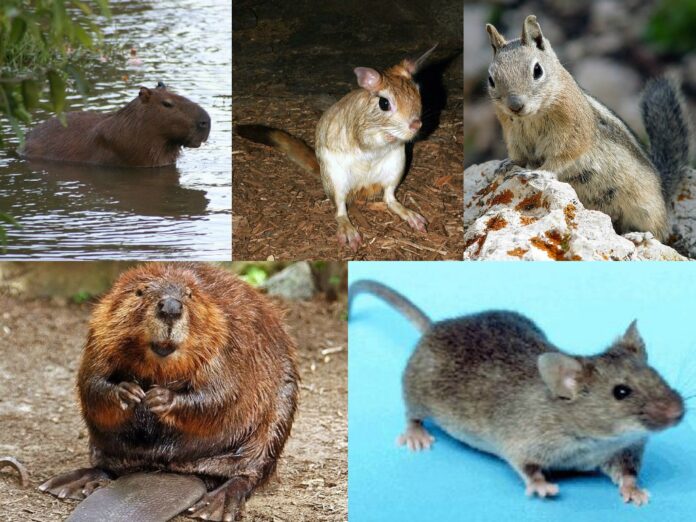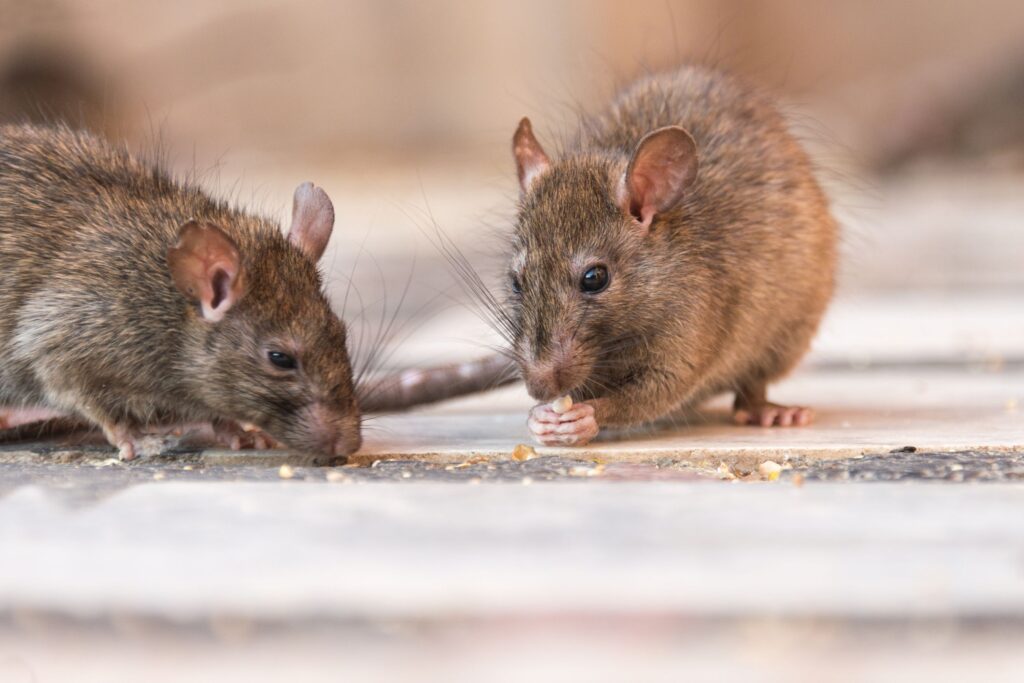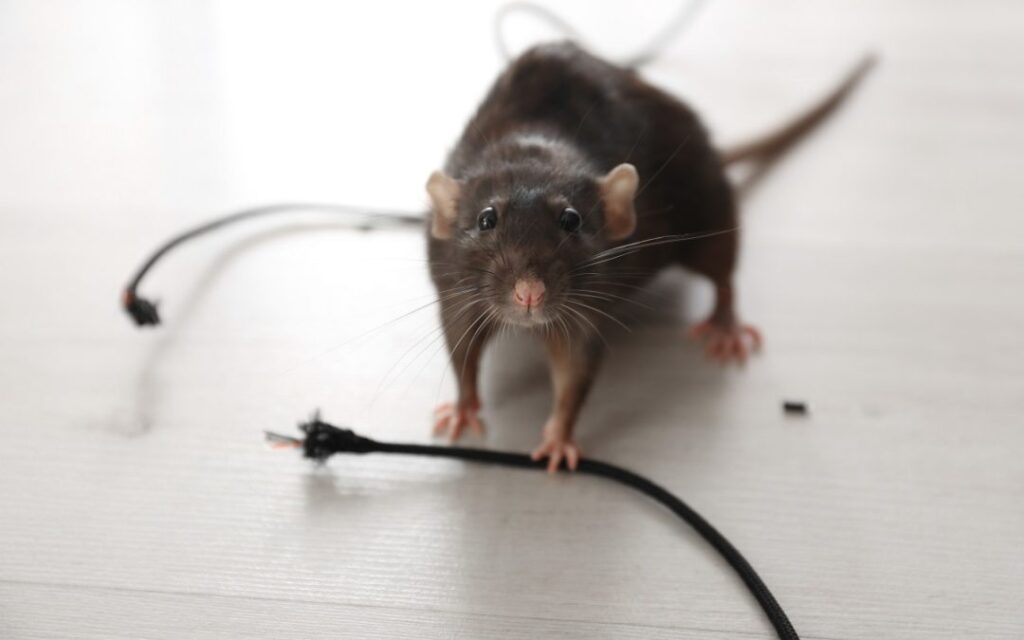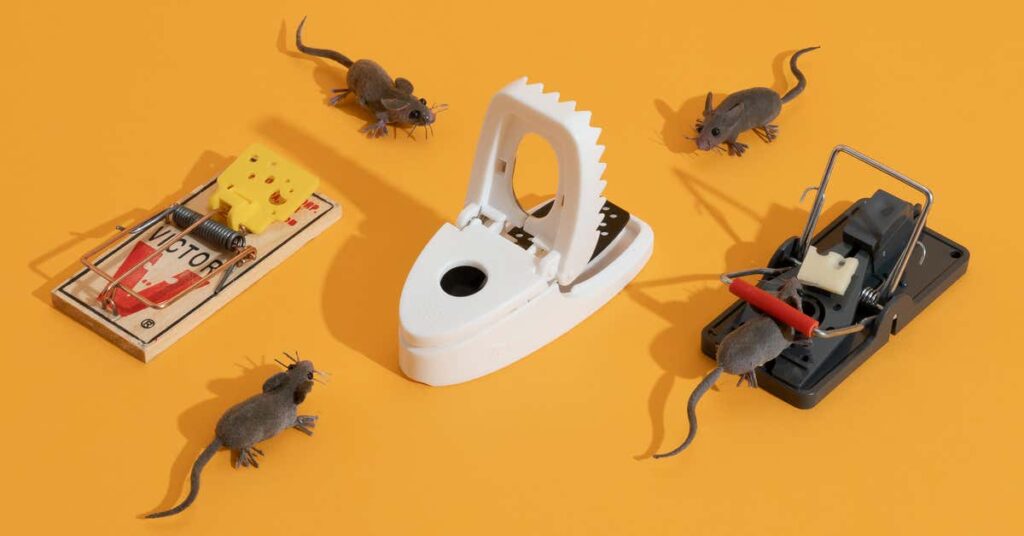
Rodents are a common nuisance that can cause significant damage to homes and businesses. They are notorious for chewing through wires, insulation, and even structural materials, which can result in costly repairs.
In addition, they can carry diseases that can be harmful to humans, making them a serious health concern. Therefore, it is crucial to identify and control rodents as quickly as possible to prevent these issues from occurring.
Rodent control is the process of managing and preventing infestations. It involves identifying the type of them that is present and implementing measures to control and prevent their presence. Identifying them is crucial as different species may require different control methods. Some common rodents include mice, rats, and squirrels.
In addition to causing physical damage and spreading diseases, they can also create a sense of discomfort and unease in the home or workplace. The sight of a rodent scurrying across the floor or hearing the sounds of them rustling around in the walls can be unsettling for many people. Therefore, it is important to take steps to prevent rodent infestations and promptly address any signs of an infestation.
Fortunately, there are many methods for controlling them, including traps, baits, and repellents. By taking preventative measures and implementing effective control methods, you can protect your property from the damage and risks associated with rodent infestations.
If you are struggling with an infestation, it is recommended that you seek the assistance of a professional pest control service to ensure that the problem is addressed thoroughly and effectively.
Identifying Different Types of Rodents

The first step in controlling them is to identify the type of rodent that is present. There are several common types, including mice, rats, and squirrels.
Mice – Mice are small ones that are usually around 3-4 inches long. They have pointed noses and large ears, and their tails are usually longer than their bodies.
Rats – Rats are larger than mice, usually around 9-11 inches long. They have blunt noses and smaller ears than mice, and their tails are usually shorter than their bodies.
Squirrels – Squirrels are larger than mice and rats, usually around 12-18 inches long. They have bushy tails and are often seen running along power lines and tree branches.
Controlling Different Types of Rodents
Once you have identified the type of rodent that is present, you can take steps to control them. There are several different methods for controlling them, including traps, baits, and repellents.
Traps
Traps are a common method of controlling them. There are several different types of traps available, including snap traps, glue traps, and live traps.
Snap traps are the most common type of trap and work by killing them quickly. Glue traps work by trapping the rodent on a sticky surface, while live traps capture the rodent alive so that it can be released elsewhere.
Baits
Baits are a common tool used in rodent control. They are typically used to attract and kill them and can be an effective way to control infestations. Baits are composed of a food or attractant that is mixed with a toxic substance that will kill them. The bait is then placed in an area where the rodent is likely to come across it, such as along a rodent runway or in a bait station.
One of the advantages of using baits is that they are relatively easy to use and can be effective in killing large numbers of them.
They are also relatively inexpensive and can be used in both indoor and outdoor settings. Baits are available in different forms, such as pellets, blocks, and liquid formulations, to suit different situations.
However, baits must be used with caution, as they can be dangerous to humans and pets if not used properly. It is important to follow the instructions on the bait packaging carefully, and to ensure that baits are placed in areas that are inaccessible to children and pets.
In addition, baits can be less effective in controlling their populations in areas where there is an abundant food source or where they have developed resistance to the active ingredient in the bait.
Repellents
Repellents are another method of controlling them. There are several different types of repellents available, including electronic repellents, ultrasonic repellents, and scent repellents.
Electronic and ultrasonic repellents emit high-frequency sounds that rodents find irritating, while scent repellents use natural scents to repel them.
Preventing Rodent Infestations

The best way to control rodents is to prevent them from infesting your home or business in the first place. There are several steps you can take to prevent rodent infestations, including:
- Seal any cracks or holes in your home or business that they can use to gain entry
- Keep food in sealed containers and clean up any spills or crumbs immediately
- Remove any clutter or debris that they can use for nesting
- Store firewood and other materials away from the exterior of your home or business
- Keep your yard and landscaping well-maintained to reduce hiding places for them
Safeguard Your Home and Business with Effective Rodent Control

In conclusion, effective rodent control is essential for safeguarding your home and business from the damages and health risks associated with rodent infestations. Identifying the type of rodent present is the first step in implementing control measures, and there are many options available, including traps, baits, and repellents.
However, prevention is key to avoiding rodent infestations in the first place, and taking steps such as sealing entry points, removing clutter, and properly storing food can go a long way in preventing rodent invasions.
Ignoring these problems can lead to serious issues, such as electrical fires, structural damage, and the spread of diseases. Furthermore, the emotional distress caused by the presence of rodents in a home or business should not be overlooked.
Implementing effective rodent control measures can provide peace of mind, and protect both your physical and mental health.
It is important to note that some rodent infestations may be too severe to handle on your own. In such cases, it is advisable to seek the assistance of a professional pest control service.
Pest control professionals have the knowledge, experience, and tools to tackle even the most challenging infestations and ensure that they do not return.
In summary, preventing and controlling infestations is crucial for protecting your property and the health of you and your loved ones.
By taking proactive measures and seeking professional assistance when needed, you can safeguard your home and business from the damages and risks associated with invasions.








